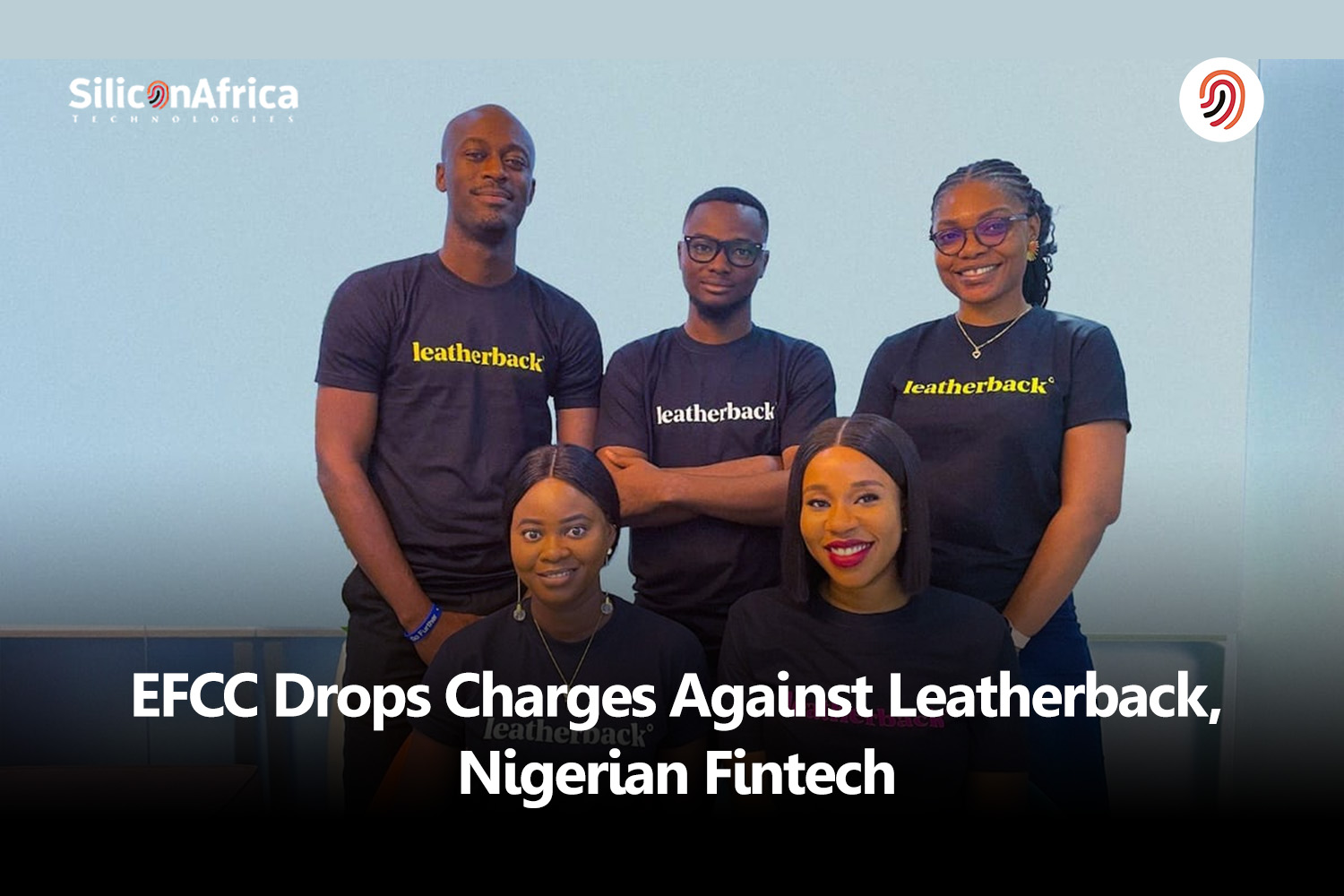Physical Address
60 Ekwema Cres, Layout 460281, Imo
Physical Address
60 Ekwema Cres, Layout 460281, Imo

In a landmark decision that has sent ripples through the Nigerian financial technology (fintech) sector, the Economic and Financial Crimes Commission (EFCC) has officially dropped all charges against Leatherback, a prominent Nigerian fintech company.
This move, which comes after a protracted legal battle, has been hailed as a significant step towards fostering a more conducive environment for innovation and growth in the country’s fintech industry.
Leatherback, a pioneering fintech company, was established in 2017 with the aim of revolutionizing the Nigerian payment landscape.

The company’s innovative solutions, such as its digital wallet and payment gateway, quickly gained traction among consumers and businesses alike.
However, in 2020, Leatherback found itself embroiled in a legal dispute with the EFCC, which accused the company of various financial crimes, including money laundering and fraud.
The EFCC’s allegations against Leatherback were met with strong denials from the company, which maintained its innocence throughout the legal process.
Leatherback’s management argued that the charges were baseless and that the company had always adhered to the highest standards of regulatory compliance.
The company’s legal team, led by renowned lawyer Adeola Adedipe, fought tirelessly to clear Leatherback’s name and to demonstrate the company’s commitment to transparency and integrity.
After a thorough investigation and review of the evidence, the EFCC has decided to drop all charges against Leatherback.
The decision was made following a meeting between the EFCC and Leatherback’s management, during which the company’s compliance with regulatory requirements was reaffirmed.
The EFCC’s spokesperson, Wilson Uwujaren, stated that the decision to drop the charges was based on the “satisfactory evidence of compliance with regulatory requirements” provided by Leatherback.
Read More: Exclusive: A Closer Look into the Top 10 Biggest Fintech Companies in Africa 2024
Leatherback, understandably, expressed relief and gratitude for the EFCC’s decision. In a statement released by the company, CEO Adaeze Obiako praised the commission for its “fairness and professionalism” during the investigation.
“We are grateful to the EFCC for taking the time to understand our business and ultimately recognizing that we operate with integrity,” Obiako said. “This decision is a positive step forward, not just for Leatherback, but for the entire Nigerian fintech industry.”
However, Obiako also emphasized the need for continued dialogue and collaboration between fintech companies and regulators. “We believe that open communication and a willingness to work together are essential to fostering a thriving and innovative fintech ecosystem in Nigeria,” she added.
The EFCC’s decision to drop charges against Leatherback has been welcomed by the Nigerian fintech sector, which has been grappling with regulatory uncertainty and a lack of clarity in recent years.
The move is seen as a sign of the EFCC’s commitment to fostering a more conducive environment for innovation and growth in the sector.
The decision also highlights the importance of regulatory compliance and transparency in the Nigerian fintech sector.
Leatherback’s management has consistently emphasized the company’s commitment to regulatory compliance, and the EFCC’s decision to drop charges against the company is a testament to the company’s efforts in this regard.
Following the EFCC’s decision to drop charges against the company, Leatherback’s management has expressed its commitment to continue to innovate and to provide cutting-edge financial solutions to Nigerian consumers and businesses.
The company has also stated its intention to work closely with the EFCC and other regulatory bodies to ensure that the Nigerian fintech sector remains a safe and secure environment for innovation and growth.
The EFCC’s decision to drop charges against Leatherback is a significant step towards fostering a more conducive environment for innovation and growth in the Nigerian fintech sector.
The move highlights the importance of regulatory compliance and transparency in the sector, and it serves as a testament to Leatherback’s commitment to these values.
As the Nigerian fintech sector continues to grow and evolve, it is essential that regulatory bodies and fintech companies work together to ensure that the sector remains a safe and secure environment for innovation and growth.